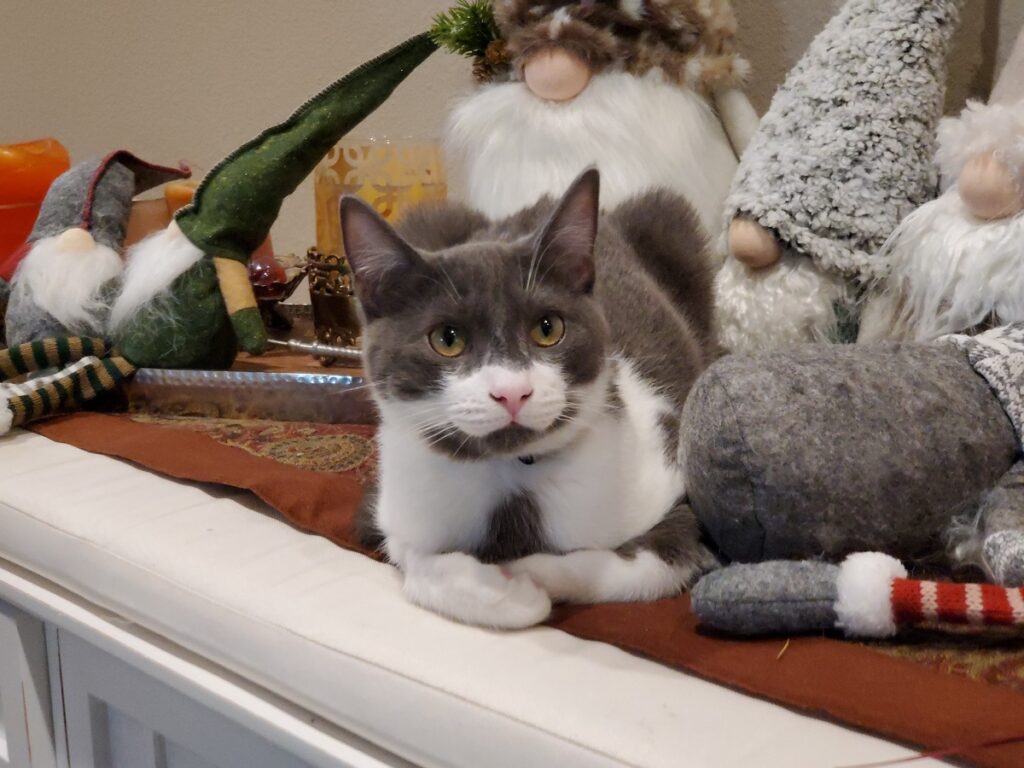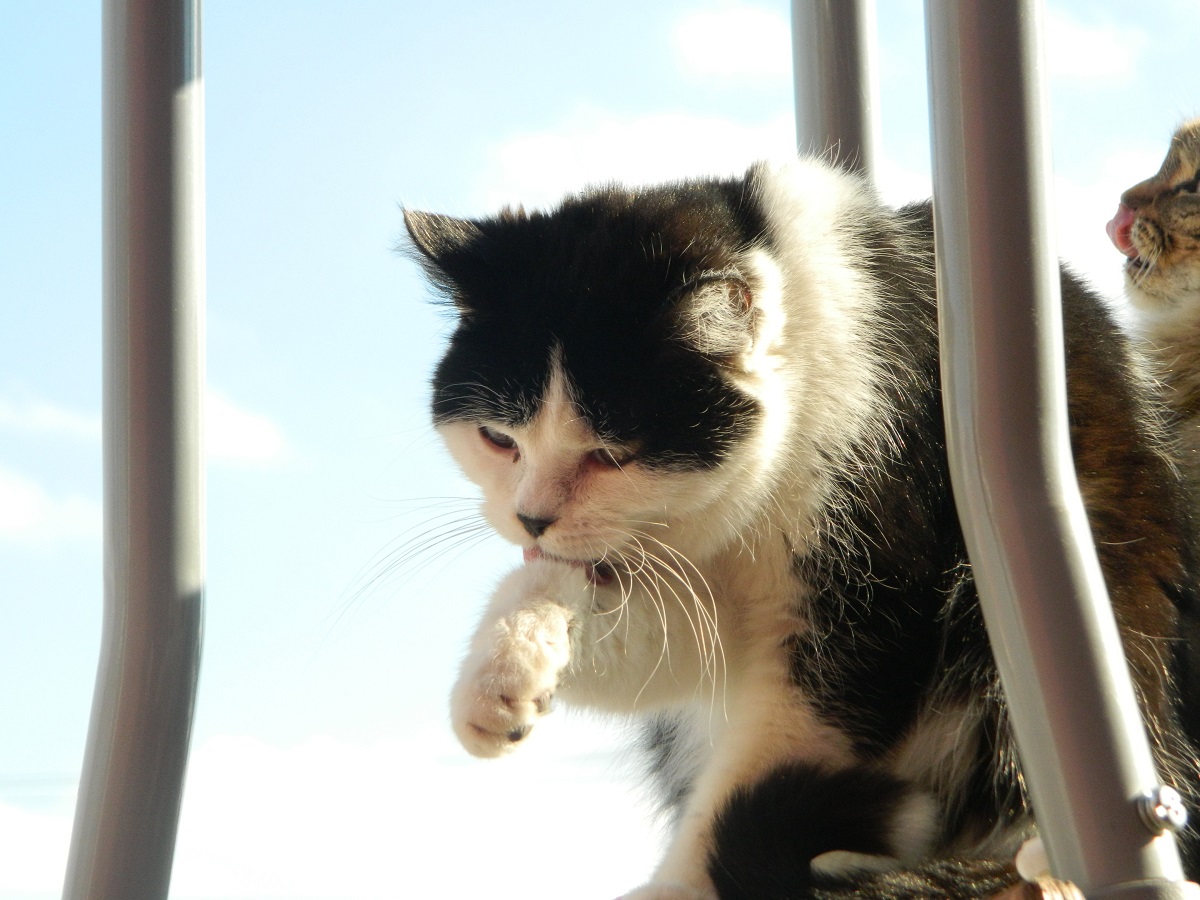Kittens are many things: adorable, chaotic, sleep champions, and oddly passionate about personal hygiene. You may have noticed that your kitten spends a good chunk of their day licking, twisting, and grooming every square inch of themselves. That is not just them being fancy. It is instinct.
Most kittens groom frequently throughout the day, and for the most part, it is completely normal. In fact, grooming is a big part of feline life from the very start. But just like anything else with cats, there is a line between “adorably clean” and “maybe something is up.”
Let’s explore how much grooming is typical for kittens, what grooming behavior actually does, and when to raise an eyebrow if your kitten starts licking like it is their full-time job.
Grooming Starts Young and Stays Frequent
Kittens begin learning how to groom themselves at around four weeks of age. By the time they are eight weeks old and settling into their new home, most are already grooming pros. Their mom taught them the basics, and now they are refining their skills like the little perfectionists they are.
On average, a healthy kitten spends between 30 and 50 percent of their waking hours grooming. That includes licking their fur, cleaning their paws, grooming their tails, and sometimes giving you or their siblings a few friendly licks too.
This grooming helps kittens:
- Keep their fur clean and free of debris
- Distribute natural oils to maintain a healthy coat
- Stimulate circulation and remove loose fur
- Regulate body temperature
- Reduce stress and self-soothe
If your kitten seems to be grooming a lot but otherwise looks healthy, plays normally, and is eating and sleeping well, they are probably just doing their job as a tiny, self-cleaning machine.
Social Grooming Is a Sign of Comfort
You might notice your kitten licking their littermates, other pets, or even you. This is called allogrooming, or social grooming, and it is one of the cutest ways cats bond with others.
In a multi-kitten household, allogrooming helps strengthen social connections, reduce tension, and even set a pecking order. When your kitten grooms you, they are not just being affectionate. They are claiming you as part of the pride.
As long as the grooming is gentle and occasional, it is a sign that your kitten feels safe and bonded to their social circle.
When Grooming Becomes a Red Flag
While frequent grooming is normal, excessive grooming can be a sign of an underlying issue. If your kitten is licking one spot obsessively, biting at their fur, or grooming to the point of hair loss, it is time to pay closer attention.
Potential causes of over-grooming include:
- Fleas or skin irritation
- Allergies, either food or environmental
- Pain or discomfort in a specific area
- Anxiety or stress, often from changes in the environment
- Compulsive behavior in response to boredom or lack of stimulation
Other warning signs to look for:
- Red or inflamed skin
- Bald patches
- Scabs or bumps
- Changes in appetite or activity level
- Sudden increase in grooming that lasts for several days
If you notice any of these signs, a vet visit is the best next step. Your kitten might need treatment for a skin condition, allergy testing, or just a little help managing stress.

Dear Big Brother, Your grooming lessons have been quite an eye-opener. I always thought that licking was just a fun game, but who knew it was my ticket to a clean and shiny coat! It’s like a shower and a snack all at once. But those hard-to-reach spots – now that’s a challenge. I’ve tried the twist, the bend, the roll, but it’s like a game of Twister all by myself. Don’t even get me started on the furballs, they’re like surprise guests who overstay their welcome. But I’m on it, I’m taking it one lick at a time. You’ll see, Big Brother, I’ll be a grooming pro in no time. #OneLickAtATime #GroomingLikeABigKitty #FurballsSuck
Joey
Helping Your Kitten Maintain Healthy Grooming Habits
While your kitten will do most of the grooming themselves, you can help keep things on track with a little support.
Here is how to help:
- Brush your kitten regularly to remove loose fur and reduce hairballs
- Feed a balanced diet to support healthy skin and coat
- Keep your home flea-free with vet-approved preventatives
- Play daily to keep your kitten mentally stimulated and relaxed
- Keep their environment calm by avoiding sudden changes or loud stressors
Kittens thrive on routine, affection, and gentle guidance. A happy kitten is a healthy groomer, and healthy grooming keeps your furniture, floors, and your lap a little less furry.
Final Thoughts: Grooming Is a Sign Your Kitten Is Thriving
Frequent grooming is one of the most normal things a kitten can do, and it is a great indicator that they are healthy, relaxed, and feeling at home. As long as your kitten is not overdoing it or showing signs of irritation, there is no need to worry about how much they are licking and cleaning.
In fact, take it as a compliment. You are providing a space where they feel comfortable enough to keep themselves looking sharp. And if they stop in the middle of licking their tail to give you a slow blink, you are officially in their inner circle.
Just keep an eye out for changes in grooming patterns. If your kitten suddenly starts obsessing over one spot or seems agitated while grooming, it is worth a closer look. Otherwise, sit back and let the tiny grooming expert do their thing.
Sources:
Understanding Cat Grooming Behavior https://www.humanesociety.org/resources/why-cats-groom
Why Do Cats Groom So Much https://www.petmd.com/cat/behavior/why-do-cats-groom-so-much
Feline Overgrooming Causes and Solutions https://www.icatcare.org/advice/feline-overgrooming
Grooming and Cat Health https://vcahospitals.com/know-your-pet/grooming-and-skin-care-in-cats
Recent Posts
Your Cat Might Be a Furry Little Healer… or at Least a Fuzzy Alarm System If you’ve ever had your cat suddenly become extra clingy when you’re under the weather, you’re not alone. From...
Cats are experts at hiding things, socks under furniture, their disdain for your playlist, and, unfortunately, symptoms of illness. In the wild, showing weakness could make them a target, so even...


